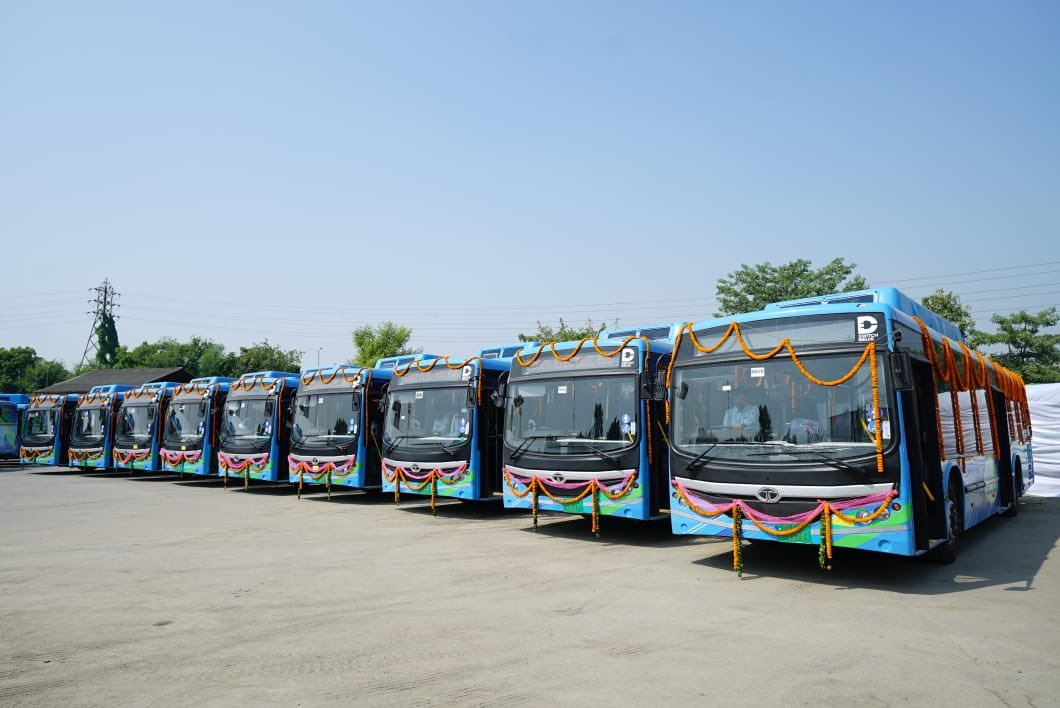News List
Delhi’s e-bus fleet rises 9X ahead of EV Policy 2.0 rollout

Delhi’s public transport is undergoing a quiet revolution, and it’s happening faster than most imagined. From having just 400 electric buses at the start of the year, the city now runs over 3,400—an impressive jump that reflects its commitment to cleaner, greener mobility. If all goes as planned, Delhi could be operating close to 8,000 electric buses by February next year, making it one of the largest EV-powered bus networks in the world.
Transport minister Pankaj Kumar Singh, speaking at the India Clean Transportation Summit 2025, described this transformation as a “turning point” for Delhi. He noted that the rapid adoption of electric buses isn’t just about numbers—it’s about solving long-standing urban challenges like traffic pollution, last-mile connectivity, and affordable commuting options for lakhs of daily passengers.
By the end of 2025, the capital expects to have nearly 6,000 electric buses actively serving its routes. Singh explained that Delhi’s total requirement, based on ongoing route rationalisation studies, lies between 7,000 and 8,000 buses. “We’ve moved from 400 buses when I took charge to 3,400 today. Our ‘Devi’ buses, in particular, have been very well received by commuters, especially women and students, as they provide safe and reliable last-mile access,” he said.
But putting thousands of electric buses on the road requires more than just purchasing vehicles. Singh emphasised that the backbone of this growth will be a robust charging infrastructure. A new EV policy is expected as early as February 2026, focusing on creating convenient charging points across the city. Plans include installations inside housing societies, under flyovers, and on vacant land in the city’s outer regions—areas where connectivity gaps still exist. To make this vision a reality, Delhi is banking on partnerships with Residents’ Welfare Associations (RWAs) and private players who can help accelerate the rollout.
The India Clean Transportation Summit also became a platform for knowledge-sharing, with Norway—partner country for the event—highlighting its own success in building an EV-friendly ecosystem. Oslo officials shared insights on how policy support, incentives, and infrastructure can collectively create a strong foundation for sustainable transport.
For Delhi’s commuters, this expansion means more than just quieter and cleaner buses. It translates into less pollution, safer neighbourhoods, cheaper rides, and the possibility of truly sustainable public transport. If the city meets its targets, the electric fleet won’t just change how people travel—it will redefine the capital’s air quality and quality of life in the years ahead.
